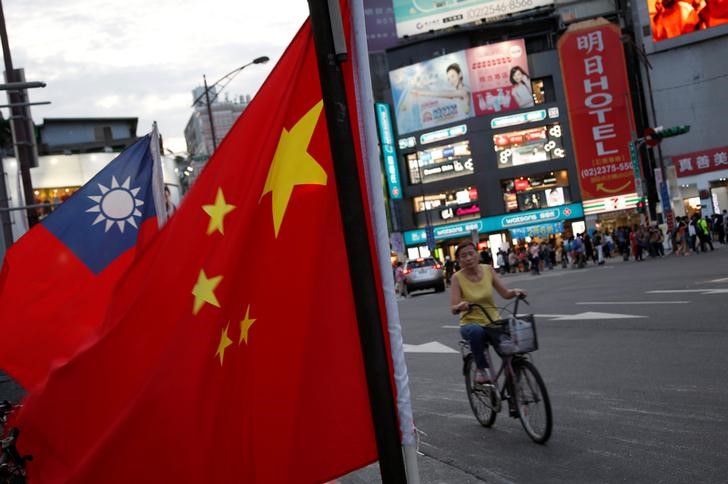BEIJING/TAIPEI (Reuters) - Taiwan will gradually get used to Chinese air force drills that encircle the island, China said on Wednesday, while Taiwan's premier reiterated the self-ruled island's desire for peaceful relations with its giant neighbour.
China considers democratic Taiwan to be its sacred territory and has never renounced the use of force to bring what it views as a wayward province under Chinese control.
It has taken an increasingly hostile stance towards Taiwan since Tsai Ing-wen, from the island's pro-independence Democratic Progressive Party, won presidential elections last year and has stepped up its rhetoric and military exercises.
Beijing suspects her of pushing for the island's formal independence, a red line for China. Tsai says she wants peace with China, but also that she will defend Taiwan's security and way of life.
Chinese state media has given broad coverage to "island encirclement" exercises near Taiwan this month, including showing pictures of Chinese bomber aircraft with what they said was Taiwan's highest peak, Yushan, visible in the background.
Asked about the continuing drills and the footage released by the air force, China's policy-making Taiwan Affairs Office said it and the defence ministry had repeatedly described the exercises as routine.
"Everyone will slowly get used it," spokesman An Fengshan told a routine news briefing, without elaborating.
China's air force has carried out 16 rounds of exercises close to Taiwan in the past year or so, Taiwan's defence ministry said in a white paper this week. China's military threat was growing by the day, it warned.
Proudly democratic Taiwan has shown no interest in being run by autocratic China, and Taiwan's government has accused Beijing of not understanding democracy when it criticises Taipei.
Taiwan Premier William Lai told a year-end news conference in Taipei that the United States, Japan and South Korea were all paying close attention to the activities of China's air force.
Lai said his government would take its lead from the president, who was in charge of relations across the Taiwan Strait.

"Under the president's leadership the Executive Yuan pushes forward government affairs, stabilising cross-strait relations towards peaceful development," Lai said, using the formal name for Taiwan's cabinet.